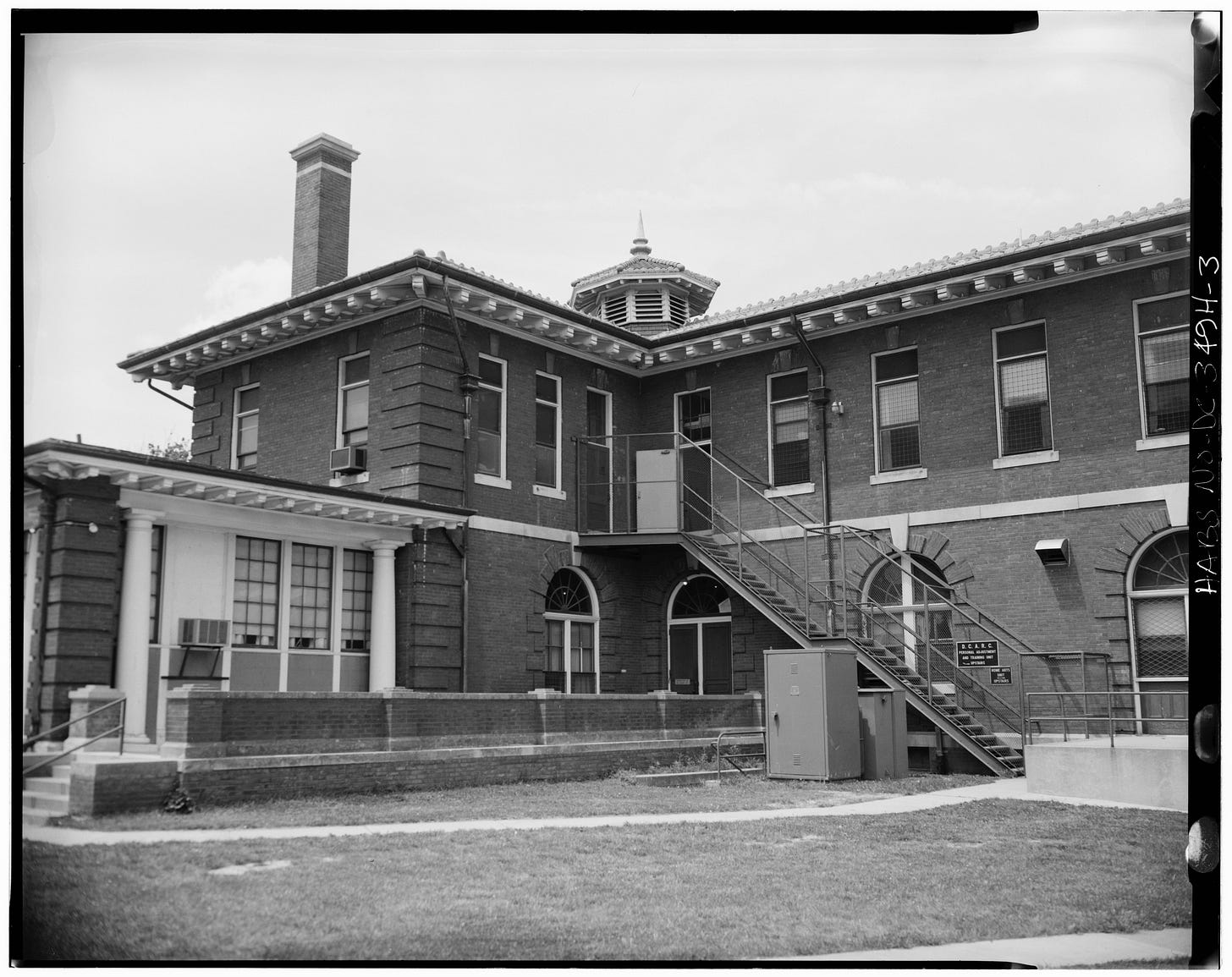The south and east facade of St. Elizabeths Hospital, Washington, D.C., where historian Regina Kunzel’s archive of writing by incarcerated queer patients originated. Photo credit: Library of Congress Prints and Photographs Division/Wikimedia Commons
In the mid-twentieth century, United States homosexuality and gender crossing was punishable in the law, and was understood by psychiatrists as a mental disorder, albeit one that could be treated and cured. Treatments ranged from intensive psychoanalysis to physical assaults, medication, and surgeries; patients both volunteered for treatment and were involuntarily confined for a condition that, as Yale historian Regina Kunzel argues in this episode, was understood a social and medical disability. In 1973, activists succeeded in removing homosexuality from the Diagnostic and Statistical Manual of Mental Disorders, although Gender Dysphoria (previously gender identity disorder, or GID) is still classified as a mental illness.
Drawing on a collection of writings produced by queer and gender-variant people confined for treatment at St. Elizabeth’s Hospital, in Washington, D.C., Kunzel’s In the Shadow of Diagnosis: Psychiatric Power and Queer Life (University of Chicago, 2024) explores one psychiatrists’ work with queer and gender-variant people in the mid- to late-twentieth-century United States.
In the Shadow of Diagnosis tells the story of queer people in their own words; it is also a compelling account of the historian’s encounter with an unexpected, rich archive about the queer past, and how history is made. But as Kunzel points out, this past also helps us think about the repathologizing of, as well as attempts to discipline and cure, queer and trans lives today.
This bonus episode comes to us courtesy of History Workshop, founded in the United Kingdom in 1967 to promote the practice of social history, or “history from below.” Now a digital magazine of radical history, History Workshop “seeks to deepen understandings of the past, cast fresh light on the present and agitate for change in the world we live in now.” You can subscribe to more episodes of this wonderful podcast here, or on your favorite podcast platform.















Share this post